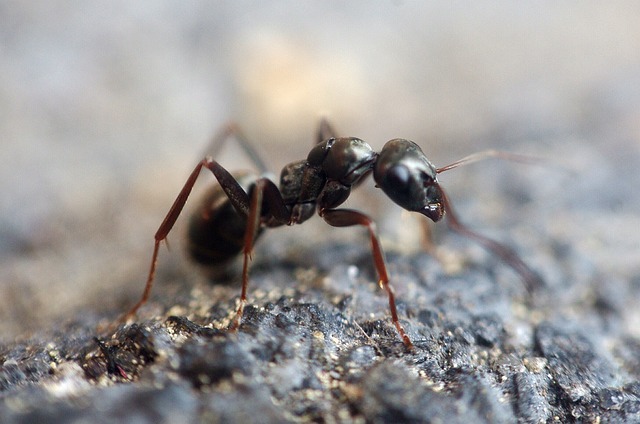Ant infestations pose significant challenges for homeowners due to their complex social structures and communication methods. Professional ant control services offer effective solutions by understanding ant behavior, from habitat identification to targeted treatment methods. Early detection is key; regular inspections and swift action can prevent large-scale infestations. Modern ant control techniques have evolved to include eco-friendly practices, such as integrated pest management (IPM), natural repellents, and advanced technologies like heat/cold therapies. DIY methods offer temporary relief but professional services provide long-lasting protection with tailored treatments and guaranteed results. Proactive measures, including sealing entry points, maintaining cleanliness, and using natural repellents, are essential for preventing future ant invasions.
Ants, despite their tiny size, can cause big problems for homes and businesses. Effective ant control is crucial for maintaining a pest-free environment. This comprehensive guide delves into the world of ant behavior, habitats, and infestations, offering insights on identifying signs early. We explore both traditional and modern control methods, emphasizing the benefits of professional services. Additionally, we provide tips on DIY vs. professional ant control, prevention strategies, and how to avoid future invasions. Discover expert advice on conquering these relentless invaders with our guide on ant control.
Understanding Ant Behavior and Habitats
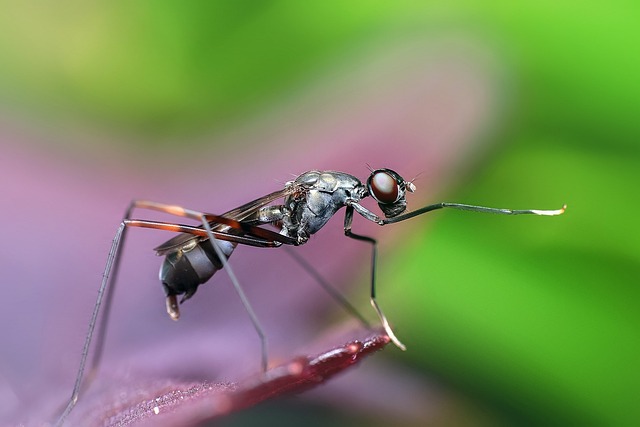
Ants are highly organized and adaptive creatures, forming complex colonies with distinct roles for each member. Understanding their behavior is key to effective ant control. These insects leave behind pheromone trails, which serve as a form of communication, leading other ants to food sources. They are attracted to sweet substances, spills, and moisture, often entering homes in search of sustenance. Ant habitats vary; they can nest in trees, soil, cracks in walls, or even behind baseboards. Identifying these entry points is crucial for preventing and managing ant infestations.
Professional pest control services employ advanced techniques to locate the main colony, understand their behavior patterns, and implement tailored strategies. By disrupting communication trails, using insecticides, or employing natural repellents, experts provide long-lasting solutions. Regular inspections and prompt action are vital in the battle against ants, ensuring a comfortable and ant-free living environment.
Identifying Signs of an Ant Infestation

Ant infestations can often go unnoticed until they’ve grown quite large, making early detection crucial for effective ant control. Keep an eye out for telltale signs such as small piles of ant debris (often seen near entry points), noticeable ant trails leading from food sources, and workers ants scurrying around your home or property. Even smaller sightings of individual ants can indicate a larger problem brewing beneath the surface.
Prompt action is key when addressing an ant infestation. By recognizing these subtle signals early on, you can engage professional ant control services to implement tailored solutions before the colony expands further. Don’t let ants take over your space – stay vigilant and address any signs immediately for optimal ant control.
Traditional Ant Control Methods
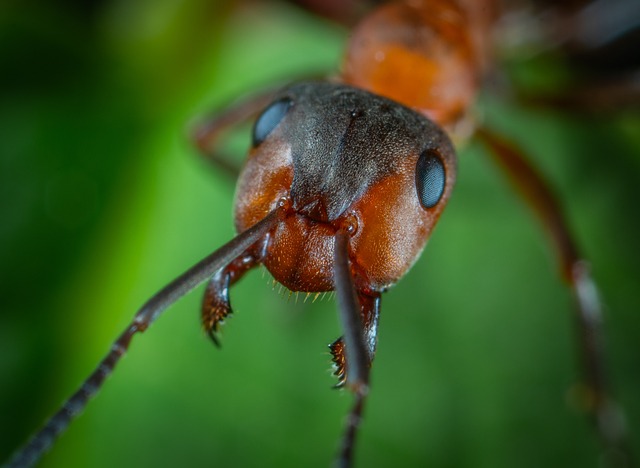
In the past, ant control often involved traditional methods that relied heavily on chemical pesticides. These substances were commonly used to eliminate ants by targeting their pheromone trails and nerve systems. While effective, this approach posed significant risks to both the environment and human health. The chemicals could contaminate soil, water sources, and even indoor air, leading to long-term ecological damage and potential health complications.
As awareness of these issues grew, a shift towards more eco-friendly and sustainable ant control services began. Today, many professional pest control companies offer integrated pest management (IPM) strategies that combine multiple non-chemical methods. These include using natural repellents, modifying habitats to reduce ant attractions, and employing advanced technology for targeted treatments. Such approaches not only provide effective ant control but also minimize the ecological footprint and ensure a safer living environment.
Modern Ant Control Solutions
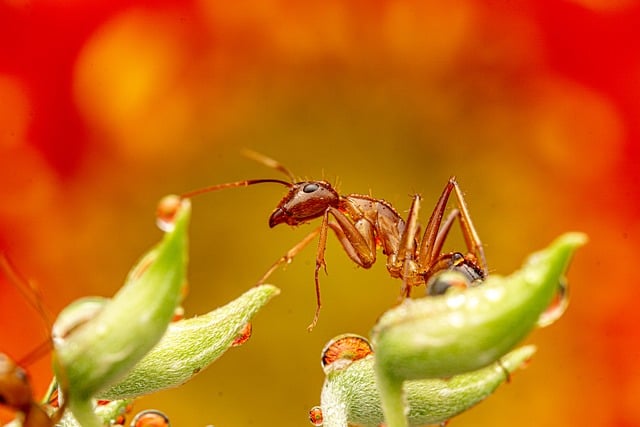
In today’s world, modern ant control solutions have evolved far beyond traditional methods. With advancements in pest management, professionals now employ a range of innovative techniques to effectively combat ant infestations. From sophisticated surveillance systems that track ant trails to eco-friendly baits and traps, these cutting-edge tools offer precise and targeted approaches. By understanding ant behavior and leveraging modern technology, specialized services can provide tailored solutions, ensuring long-lasting results without causing harm to the environment or other beneficial insects.
These advanced methods not only increase efficiency but also promote sustainability. For example, heat treatment and cold treatments target ants directly without affecting other organisms, while microwave and laser technologies have shown promise in specific scenarios. Additionally, the use of pheromone traps and genetic monitoring helps disrupt ant communication networks, rendering them less effective in colonizing areas. Modern ant control services thus strike a balance between effectiveness and environmental consciousness.
DIY vs Professional Ant Control Services
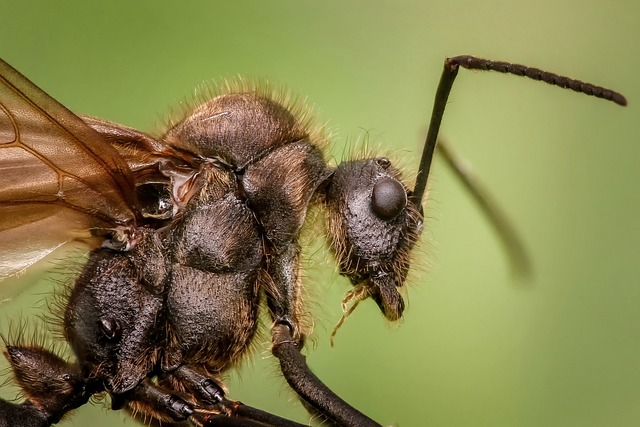
When it comes to ant control, there’s a common debate: DIY or professional services? While do-it-yourself (DIY) methods can offer temporary relief, they often fail to address the root of the problem. Professional ant control services bring expertise and specialized equipment that target ant colonies directly, ensuring long-lasting results.
Hiring professionals is especially beneficial for severe infestations. They use advanced techniques like baiting systems and chemical applications tailored to specific ant species, making them more effective than over-the-counter solutions. Plus, professional services guarantee their work, providing peace of mind knowing your home or business is protected from ant invasions.
Preventing Future Ant Invasions
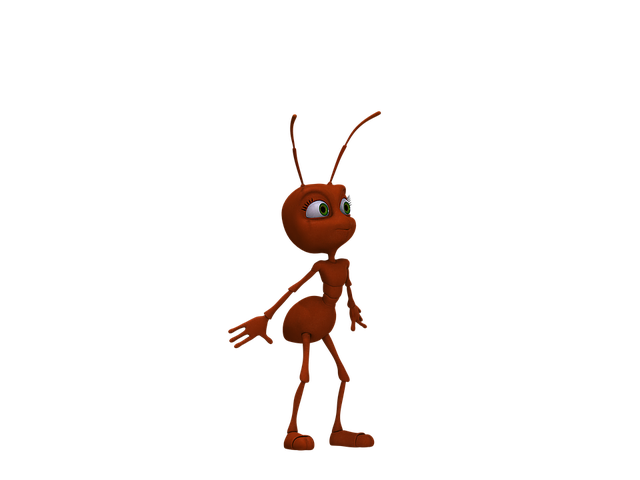
To prevent future ant invasions, a comprehensive approach is essential. Once an ant infestation is under control, it’s crucial to take proactive measures to deter ants from returning. This involves identifying and sealing entry points, such as cracks, gaps around pipes and cables, or any other potential routes into your home or property. Regular cleaning and sanitizing, especially in areas where food is prepared or stored, can significantly reduce ant attraction.
Additionally, maintaining a clean outdoor space is vital. Removing sources of water, like stagnant pools or leaking faucets, and keeping garbage bins securely closed can make your environment less hospitable to ants. Using natural repellents like citronella or mint plants around entry points can also serve as a non-toxic deterrent. Regularly reviewing and reinforcing these measures will go a long way in ensuring effective ant control services that prevent future invasions.
